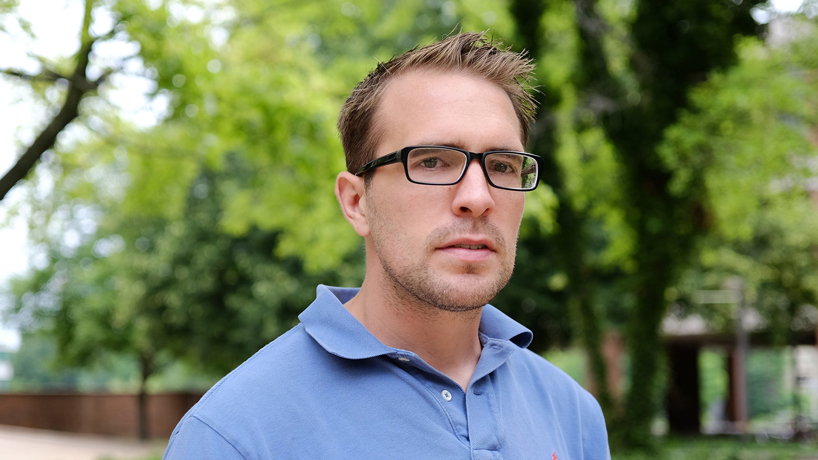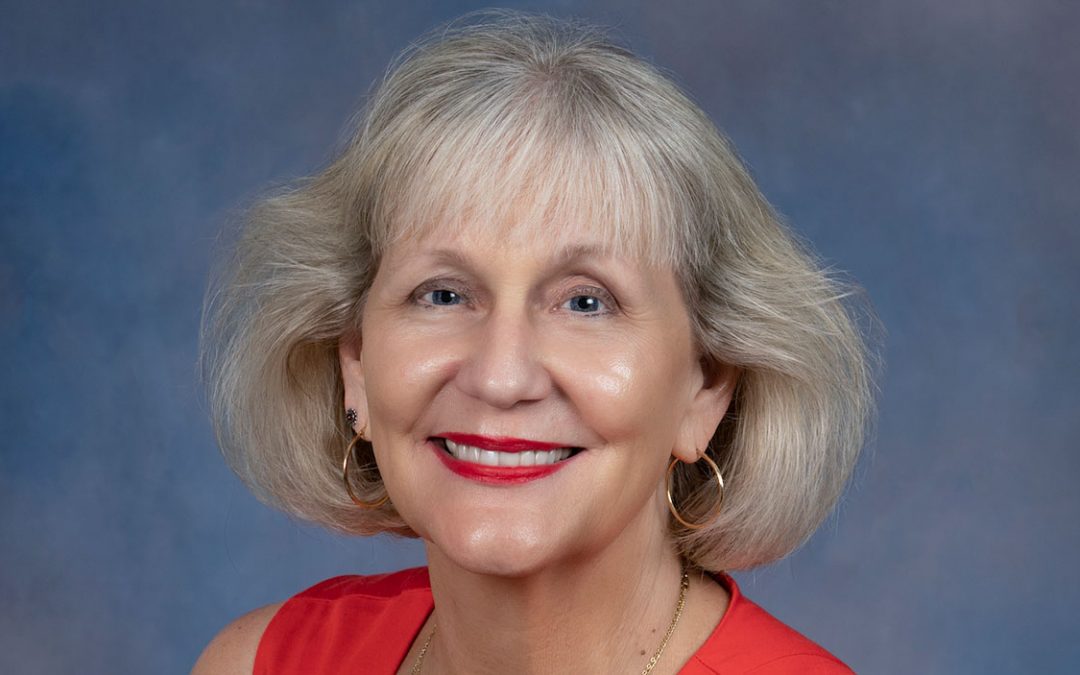
UMSL student veteran Ryan Barrett, whose dissertation research is focused on Russian foreign policy, will study the Russian language in Minsk, Belarus, next academic year. (Photo by August Jennewein)
As a student leader at the Veterans Center on campus, Ryan Barrett is quick to encourage fellow military veterans to make the most of their education benefits.
“Some vets, I think, maybe at times just want to get school out of the way and just try to get a job, and I totally understand,” says Barrett, a PhD candidate in political science at the University of Missouri–St. Louis. “But the G.I. Bill is a second opportunity to learn something new, learn something different.”
Barrett has followed his own advice, enrolling as a graduate student at UMSL in 2012. After serving five years in the U.S. Air Force and tours of duty in Iraq and Afghanistan, he was ready to return to a field of study that has long held his interest: eastern Europe.
“I think it all kind of stems from the fact that since the end of the Cold War, Russia, at least in American eyes, got kind of neglected for a while, and we maybe missed an opportunity to build stronger relations there,” Barrett says. “I decided on this [research focus] a while ago, and then, of course, in February of 2014, Russia invaded Crimea. And then I go, ‘Bingo, there’s my case study.'”
With comprehensive exams behind him, Barrett’s next step towards his doctorate is a year of advanced Russian language study at Belarusian State University in Minsk, Belarus. His 10 months in the country – tucked between Poland, Lithuania, Russia and Ukraine – are possible because of a Boren Fellowship he was awarded this spring.
“My focus will be the Russian language,” Barrett says. “Culturally Belarusians are similar to Russia and Ukraine, and politically they’re very tied to Russian politics. When I eventually can do field work in Ukraine, I’ll be less reliant on translators and so forth.”
Barrett’s fellowship, one of 101 awarded to U.S. graduate students for the 2015-16 academic year, is sponsored by the National Security Education Program, a federal initiative.
“To continue to play a leadership role in the world, it is vital that America’s future leaders have a deep understanding of the rest of the world,” former U.S. Senator and University of Oklahoma President David Boren said in a press release about this year’s Boren awards. “As we seek to lead through partnerships, understanding of other cultures and languages is absolutely essential.”
Barrett estimates that he spends about 10 hours a week studying Russian with tutors here in St. Louis – that’s on top of his political science coursework and Veterans Center responsibilities at UMSL. This past March, he got to spend a week in Russia with fellow UMSL students in a service-learning course taught by International Program Coordinator Jerol Enoch.
“We have a sister class there [in Russia],” says Barrett, who stayed with a host family. “I learned a lot just during that one week. So if I can be there for 10 months, I think that I can gain a much deeper understanding of the language and culture.”
Barrett plans to depart for Belarus this August and return to UMSL in fall 2016 to continue his dissertation research. He hopes to go into foreign affairs and put to use his language and political-analysis skills.
“UMSL has a lot of great opportunities out there,” he says. “It’s a big school, and so sometimes you might feel like you get kind of lost, as a number. You’ve gotta go out there and find where your niche is at.”
For student veterans including Barrett, finding that niche can be a significant and welcome shift.
“The vast majority of veterans get out of the military, and they really are starting a whole new career,” Barrett says. “I was in logistics … But even with jobs like I had, with more of a civilian equivalent, a lot of us don’t want to do that in the civilian world. I think a lot of veterans hopefully can appreciate that, and, on the flip side, I hope civilians can understand that, too.”















